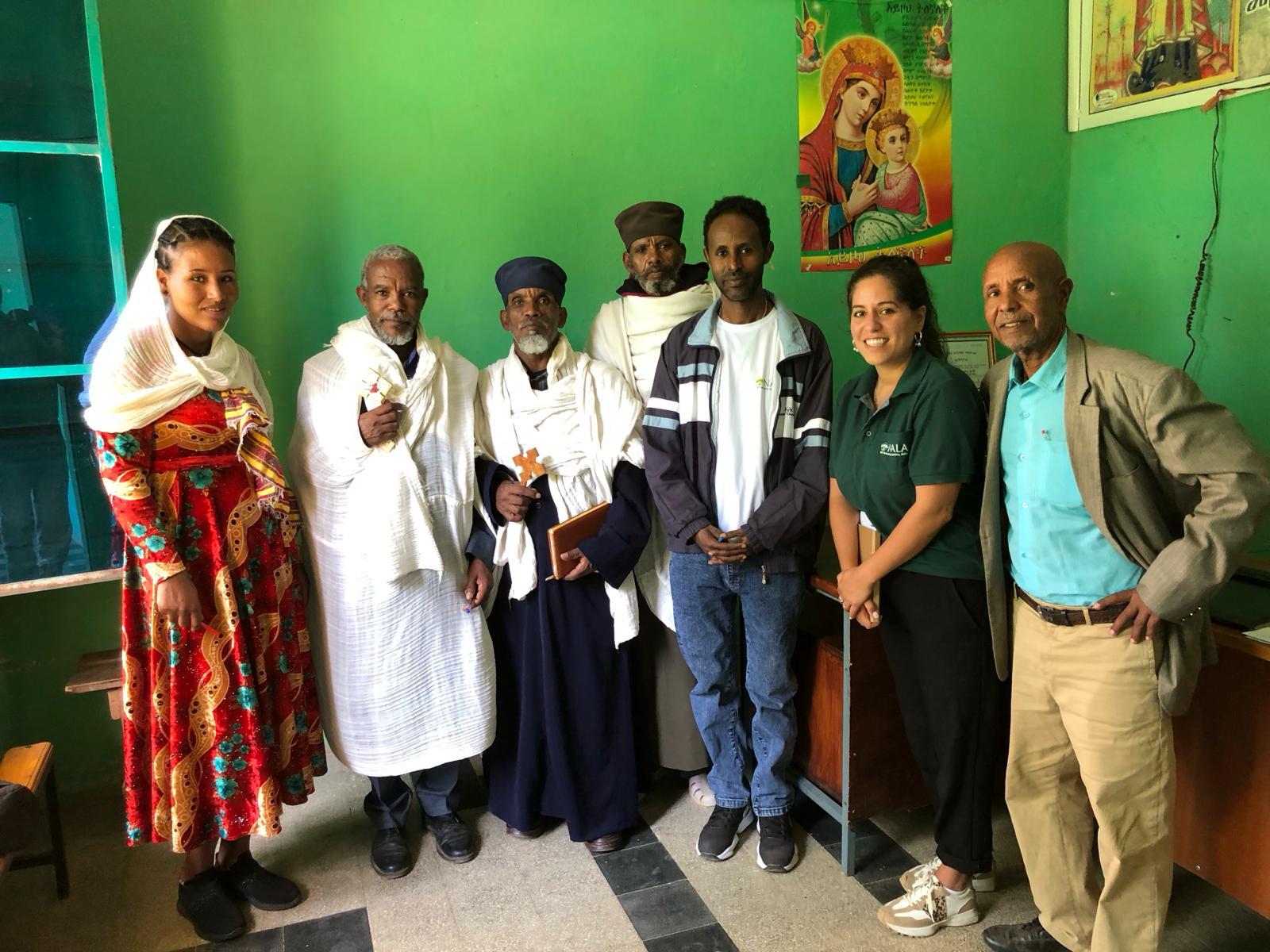“The NALA training woke me up,” commented Priest Hawas Gebremichael. “Before the training, I understood that my own personal hygiene was important, but the training paved the way for me to think about the importance of hygiene and sanitation for all the people in my church. I understand now that I can lead the way in making them healthier.”
Priest Hawas is the religious leader of one of the largest Orthodox churches in urban Adwa. On a regular Sunday, more than 2000 people attend services at his church with more than 6000 in attendance on holidays. There is one public latrine outside the gates of the church, but it is often closed.
“A big problem is the lack of cooperation between the church and the urban health bureau,” Priest Hawas explained. “The health bureau does not maintain the latrine or discuss with us how to maintain it, so it’s usually closed and unusable. This can be a big problem for our congregants, and there is a sanitation issue because of it.”
NALA recently held a stakeholder meeting in Adwa, attended by local religious leaders along with representatives from the health and education offices. During the meeting, Priest Hawas discussed the public latrine issue at his church with the vice head of the urban health bureau. Afterwards, he said, “It is important that we have this forum to come together and discuss these issues. I plan to bring up the issue of the public latrine in my church and raise money to maintain it.”
“Water access is also a problem,” said Priest Woldemariam Geramikael from a rural Orthodox church in Gendebta village. “There is no water in the church so we do not have a place for handwashing. The church is still new, and people have been raising money to build it. We hope also to raise money from the community to build a latrine for the church.”
Religious leaders play an important role in many important life events of their communities as well. “A wedding is a big occasion in our community, and I have performed many of them,” Priest Woldemariam explained. “Usually, people wash hands after they eat because their hands get dirty while eating the injera. However, after the NALA training, I started to tell people at weddings to also wash their hands before they eat. It’s good to use these occasions to teach the community, and next time we will try to recruit a health worker to do a demonstration of handwashing during a wedding or community meeting.”
“In the Muslim community, people already wash before entering the mosque,” imam Khalil added. “However, we do not usually have soap.” He estimated that they are 9-10 mosques in urban Adwa. “I know that the four largest mosques have latrines and showers that are maintained. However, I do not know about the smaller mosques. The NALA training encouraged me to want to share my experiences on water and sanitation issues with the other mosques and raise more awareness on hygiene to our congregations.”
As NALA prepares for the relaunch of the Adwa project, following almost 4 years of no community health activity, it will once again focus on the incorporation of religious leaders as community mobilizers for improved health and hygiene in the community. In the words of Priest Hawas “I’m ready to teach.”
